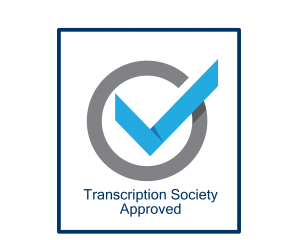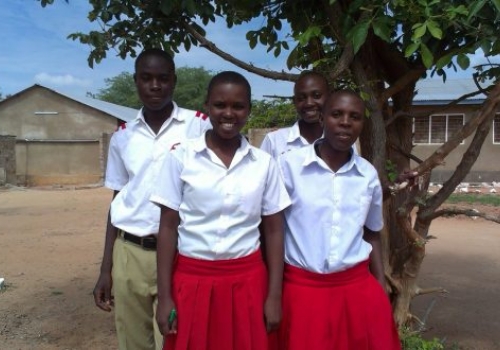What is Academic Transcription?
Academic transcription is the preparation of written documents from spoken word. This is academic transcription at its simplest. It can be completed either from audio or video recordings both in digital and analogue formats, although these days it is very rare for anyone to use any analogue systems to record their spoken word to get it transcribed. We do still get requests for data stored on records, cassette tapes and other media in analogue format.
University Transcripts
Academic transcription should not be confused with the provision of transcripts by universities to individuals when they have finished their academic studies at the university. A university transcript is a document provided with details of your results, your degree classification and your qualification from the university and is usually obtained directly from the Alumni Office of any particular university you may have attended.
It is very important to keep your transcript safely once you get it because in our experience it can be hard for former students and graduates to get details from their university in future years, particularly if a lot of time has gone past and/or the university has merged or amalgamated with another organisation. These are often required when you are transferring your qualifications to a different country.
Digital Recordings
The overwhelming majority of people preparing recordings for transcription use digital recorders and quite often which recorder used depends on the policy within the particular academic institution or university.
Smartphones
Some universities have a blanket ban on the use of smartphones to prepare recordings, due to security concerns, but unfortunately this is very often the easiest way by far to record for the purposes of academic transcription but this is just the way it has to be. If a university has a policy where a smartphone can’t be used then quite often the recorder of choice would be an Olympus or Philips dictaphone providing files in various formats but including a DSS format or file.
At the moment the overwhelming number of recordings we receive are provided to us as MP3, M4a or MP4 recordings or sometimes WAV recordings as well. These are very easy to manipulate and prepare transcriptions from. Some institutions insist on recordings being made as DS2 with encryption and some companies can not accept DS2 files, we are happy to transcribe DS2 files. These are very easy to manipulate and prepare transcriptions from. However there are about 150 different types of audio file available and you can send any digital audio or video recordings to TP Transcription Limited and get them transcribed .
Recordings are very often done because academics, whether researchers, lecturers or professors, require a written copy of particular spoken word that they may have. This can include television interviews, seminars, conferences, research interviews, podcasts, focus groups, meetings, court proceedings, inquests and much more besides.
Academic Value in the Written Word
The overwhelming reason for anyone looking to get academic transcription work is because the spoken word has a value in academic terms to the listener and therefore a written document version is required.
One to One Interviews
The vast majority of academic transcription work we undertake is of one-to-one interviews, namely with an academic researcher speaking to one subject and asking them a range of questions relating to an area of academic study the researcher is working on. Quite often this will be to record the experiences of the subjects, but it can also be to get a record of the language used by the subject, and this is particularly so if the researcher is a linguist or speech and language specialist.
Jefferson Transcription
There is a type of transcription known as Jefferson transcription for conversational analysis, which includes a whole myriad of graphics and diagrams to prepare a written document format. This is because at the same time as preparing a written document of the spoken word the transcriber is also preparing guidelines for the reader as to how the spoken word was delivered. Jefferson was a speech & language specialist in the USA who developed a key for analysing conversation and speech. We have transcribers specifically trained at Loughborough University in the art of analysing the spoken word and preparing written text versions.
Academic Transcription Recording Locations
When undertaking academic transcription it is important to make sure you get as clean a recording as possible and we usually recommend avoiding recording in busy or noisy places. Coffee shops are very good examples (as well as pubs) as to why it can be an extremely bad idea to conduct an interview in these locations. The background noise in a coffee shop can be tremendous and drown out vast parts of audio recordings between two people speaking.
Finding a quiet room is a good idea as well as placing whatever recording device you were using equidistant from all participating parties. It can be very useful to make a note of particular words that come up during the interview that you think might not be easily detectable by a transcriber, no matter how professional they are, as well as noting down all the names of the participants and any key names for things that are discussed during the interview.
Walking Interview Transcription
Walking interviews are becoming more and more popular as the subject often feels more relaxed and so opens up more, the issue with this is that the audio can be very difficult to hear as there will be a lot of background noise, traffic. The interviewer must think carefully about the positioning of the recording device when conducting a walking interview.
Recording Device Location
Make sure you check your recording device at the start of the interview and ensure it is working correctly and picking up the voices equally. We usually recommend trying not to make any recording more than one hour long and if you do need to go on longer to break the interview down into sections, partly to enable all the parties involved to take a break but also to conserve and protect your data. It is much easier to send smaller files than it is larger ones and also to correct any mistakes if you stop the recording and discover that something hasn’t been working. Many researchers have a back-up recorder as losing data from an interview can be devastating to the study.
Specialist Academic Transcribers
TP Transcription Limited are specialist academic transcribers and have been working with universities across the UK for over 20 years. We are preferred suppliers to a number of universities including UCL, Leeds University and others and we are registered with the Information Commissioner’s Office in the UK. Our company holds Cyber Essential Plus and operates a secure ISO 20071 accredited information management system.
Academic Transcription in Any Language
Not only do we provide academic transcription in English to English but we also work in any other language around the world for transcription as well as to translate documents from one language to another.
Contact TP Transcription Limited
If you have any questions about academic transcription or would like to discuss any potential orders or quote you need from us in order to get permission from your organisation or university please do not hesitate to get in touch.









